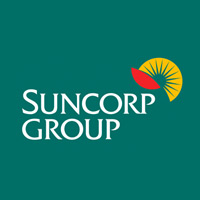Businesses are going global and the need to attract customers from multiple countries and languages has grown tremendously. As a result, international SEO has become a key part of the marketing sphere, with businesses using localisation signals such as hreflang tags in an attempt to compete in international markets.
Having a poor international SEO strategy can mean that websites may risk having the incorrect country pages indexed in search results if the right signals to crawlers. It may also prevent local content from ranking more effectively for a particular location.
In this post, we offer a few quick tips on how you can revamp your global SEO efforts.
1. Create Tailored Content
Each country has its unique culture and habits. Consequently, your content needs to conform to your target audience’s beliefs and way of doing things. In particular, you should pay special attention to the time zone, currency, and local language when curating your content. Other noteworthy factors are phone numbers, addresses, and religion. Content with the right local mix will please the search engines and land your website on top of the search page results in the target country. Remember, some jokes may not be funny or appropriate in a certain region.
Ambiguity will hinder your SEO efforts. That’s why local topics, events, issues, and trends should dominate your blog pages. You can find many of these topics by checking local news pages or the social media pages of local people.
2. Work on Your Keywords
Using the right SEO strategy also starts with intensive keyword research. While you can translate the keywords, you should remember that translating phrases can result in a totally different meaning. A person proficient in the target language can help you unless you are fluent in the target audience’s native language. Even then, you may still not be conversant with the current slang and its application in content marketing.
Your keyword research will be successful if you use the right keywords. This shouldn’t be a problem since many keyword research tools exist online. Nevertheless, you must prioritise long-tail keywords if you want the best results.
A long-tail keyword must have at least three words. For instance, “budget hotels in Melbourne” is a perfect example of a long-tail keyword. Long-tail keywords tend to offer better SEO prospects because they are specific and descriptive. They mirror the exact words that website visitors often type into the search bars.
Using long-tail keywords is extremely important because it attracts valuable leads. A person who reaches your website courtesy of a long-tail keyword is likely to buy your services or products.
3. Prepare for Indexability and Crawlability
After you have created the content structure and topics, your next task is to make it indexable and crawlable. Sending clear signals to Google on which pages should be indexed into which country-specific search engine is key.
Google and other search engines are not good at favouring misaligned content because they use relevant targeting signals to rank web pages.
While there are many different ways to serve up content internationally (each with pros and cons) an excellent summary of this can be found in Google’s own documentation which can be found here.
In some cases, you will have to create multiple international pages for each country. Although cross-linking the international web URLs is standard practice, businesses should not overdo it to avoid confusing search engines.
As mentioned above, Google recommends using different URLs for each language version of a page rather than using cookies or browser settings to adjust the content language on the page.
If you use different URLs for different languages, then the use hreflang annotations should be considered in order to help Google search results link to the correct language version of a page.
Bottom Line
Taking your business global opens up more opportunities and markets. However, your SEO plan may flounder if you neglect international SEO best practices. These tips can put your business on the right track.
Contact us about our digital marketing services today!








